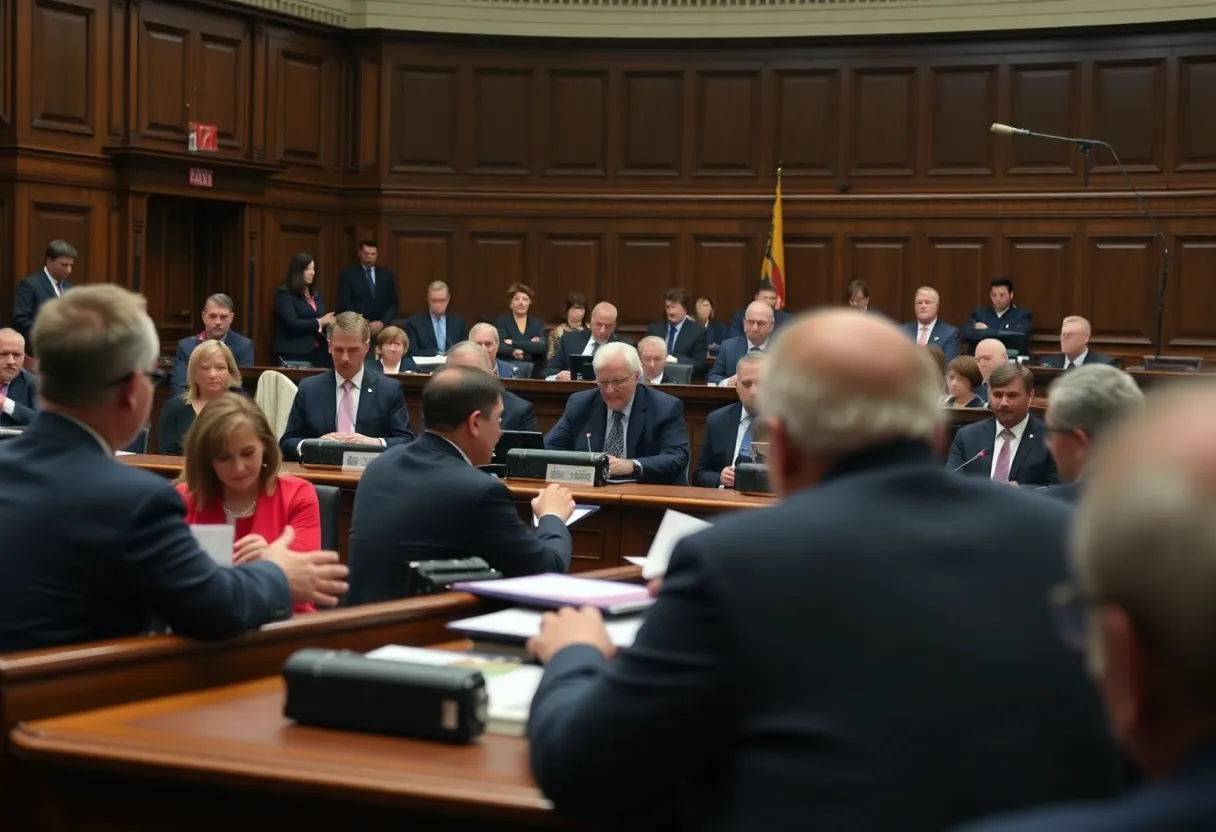

Texas House Discusses THC Bill
The Texas House has voted to approve Senate Bill 3 (SB 3), a legislation aimed at banning all forms of intoxicating THC, including Delta 8 and Delta 9. The bill has raised concerns among consumers, producers, and medical users, as it threatens a booming hemp industry valued at approximately $8 billion. Critics argue the prohibition may boost illegal market activities while supporters claim it is necessary for public health and safety. The bill now returns to the Senate for final approval before reaching the governor’s desk.
AUSTIN, Texas – On May 21, 2025, the Texas House of Representatives passed Senate Bill 3 (SB 3) with a vote of 95-44, establishing a statewide ban on all forms of intoxicating tetrahydrocannabinol (THC), including widely used Delta 8 and Delta 9 THC products. This legislation, backed by Texas Lt. Gov. Dan Patrick, prohibits the sale of any cannabinoid products containing THC, although non-intoxicating alternatives like CBD and CBG will remain legal.
The passage of SB 3 comes amid growing tensions over the state’s evolving cannabis legislation and its effect on Texas’s burgeoning hemp industry. The bill will initiate severe penalties for THC possession, with individuals potentially facing up to one year in jail, highlighting the stringent enforcement measures accompanying the new law.
The Texas hemp industry, which has thrived under previous regulations, generates approximately $4.3 billion in retail sales and employs around 53,300 people, contributing an estimated $268 million in tax revenue for the state. Industry advocates, including the Texas Hemp Business Council, have expressed significant concern regarding the bill, asserting that it dismantles the legal framework fostering their business operations.
Recent data indicates that the Texas THC industry itself is valued at about $8 billion and sustains roughly 50,000 jobs. The legal provisions established under House Bill 1325 previously allowed for hemp production and sale but did not appropriately regulate intoxicating cannabinoids, leading to the calls for a more focused legislative approach. However, instead of refining regulations, SB 3’s blanket prohibition is seen by some as a regressive step.
Critics of the bill argue that the prohibition will lead to a surge in illegal market activities, undermining public safety and access for individuals, including veterans, who utilize THC for medical purposes. Opponents contend that legislation should prioritize safety through regulation rather than outright banning substances. Lawmakers have highlighted that the ban disregards the perspectives and testimonies of small business owners and consumers who have benefited from legal THC products.
Rep. Gene Wu criticized the bill as a throwback to outdated perspectives associated with the mid-20th century that overlook the realities of THC use and its potential benefits. Additionally, industry leaders like Vince Sanders have warned that total prohibition could exacerbate dependence on the black market rather than enhance public health and safety.
Following the Texas House’s approval, industry representatives, such as Lukas Gilkey of Hometown Hero, have announced plans to mount a legal challenge against the new legislation, contesting its validity and implications for the state’s economy. The bill is set to return to the Senate for final approval before being forwarded to Governor Greg Abbott, who has previously voiced the need for more information before making a decision on cannabis-related regulations while expressing support for certain decriminalization efforts.
The recent legislative action concludes a five-year era during which Texans had access to legally consumable hemp products, and advocates for cannabis rights argue that the prohibition does not accurately reflect public sentiment or current needs. Lt. Gov. Patrick has labeled THC products as “poisonous” and has argued that their marketing frequently targets minors, justifying the strict measures outlined in SB 3.
As the situation evolves, the outcome of the bill will significantly impact Texas’s economic landscape, particularly its sizeable hemp sector, and set a precedent for future cannabis legislation in the state.
News Summary Jeff Oldham, a highly regarded appellate lawyer, has joined the Austin law firm…
News Summary Texas lawmakers have passed House Bill 14, establishing a $350 million grant program…
News Summary The Texas Senate has approved Senate Bill 3, threatening to ban hemp-derived THC…
News Summary A remarkable 30 Texas-based companies have been recognized as the best places to…
News Summary Round Rock introduces a program enabling local restaurants to offer free or discounted…
News Summary The Leander Police Department is asking for assistance in identifying two persons of…